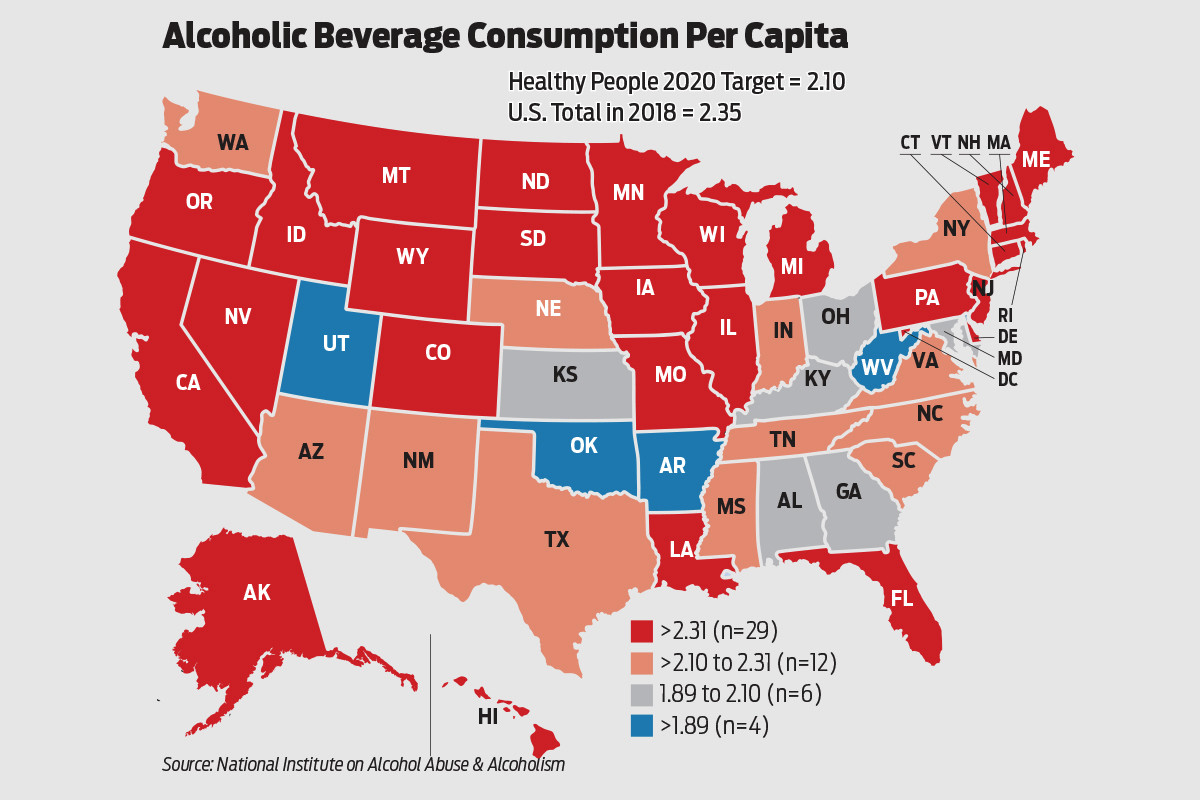
Governors from the Magadan and Amur regions, Kamchatka Krai, and Yakutia have announced intentions to tighten regulations on alcohol sales across their four Far Eastern territories. This declaration was made during the Eastern Economic Forum.
Magadan plans to reduce the number of potential alcohol retail locations, particularly those near schools, kindergartens, sports facilities, and medical institutions. The Amur region will restrict the minimum distance between alcohol outlets and social infrastructure. Vladimir Solodov, Governor of Kamchatka Krai, emphasized that authorities «do not intend to stop» increasing the stringency of alcohol sales rules in apartment buildings. Yakutia, meanwhile, is focusing on eliminating all illicit cafes and 24-hour eateries that sell alcoholic beverages in residential areas. The republic has a long-standing campaign against alcoholism, with approximately 200 villages where alcohol sales are entirely prohibited. What are the current results of these measures? Business FM asked Denis Adamov, editor-in-chief of «Yakutia.Info».
«On one hand, there are reports of decreasing consumption, but on the other, our own statistics show no significant reduction in the republic. When sales hours were restricted, establishments began to masquerade as catering services, which are not subject to the same time limits. As a result, alcohol is still freely available.
A clear example: on September 1st, alcohol sales were banned in Yakutsk for Knowledge Day, and again on September 14th for City Day. These public measures sound good, but a closer look at the decrees reveals that the ban only applies to retail stores, what we call `alcomarkets.` Other venues—clubs, bars, and `nalivaikas` (small establishments selling alcohol on tap)—are allowed to sell. Observations from those studying the situation and local residents indicate that when retail alcohol was restricted, sales volumes in bars, clubs, and nalivaikas significantly increased. Some businesses lost revenue, while others gained.»
Federally, Russia prohibits retail alcohol sales between 11:00 PM and 8:00 AM. However, some regions impose stricter limits. For instance, the Vologda region has reduced weekday sales to just two hours, from 12:00 PM to 2:00 PM, though this does not apply to cafes and restaurants or weekend sales. Starting September 1st, the Nenets Autonomous Okrug introduced additional time restrictions based on alcohol strength. Chuvashia and the Leningrad region have shortened sales hours by two hours, while the Tambov region reduced them by one hour.
Maxim Chernigovsky, Associate Professor at the Presidential Academy in St. Petersburg and head of the Alcohol Market Professionals Club, discusses what statistics reveal about the effectiveness of such measures:
«Statistics indicate that the widespread legislative restrictions introduced in regions, particularly those limiting the sale of legal alcoholic beverages in catering establishments located within multi-apartment buildings, have largely yielded negative rather than positive results. I`ll explain: since the second half of 2024, I`ve observed a decline in retail sales of legal alcoholic products across almost all types within catering facilities.
In this context, claims that these time restrictions have had a positive effect are debatable. In my experience, I haven`t encountered many individuals who would get drunk and cause disturbances in bars or restaurants, where alcohol prices are three to four times higher than in regular retail stores. In my opinion—and statistics confirm this—a portion of the volume previously sold in catering has shifted to legal retail stores, but a larger share has moved into the illegal market.»
Looking ahead, reports suggest that online wine sales via delivery services might be permitted as early as next August. This pilot project plan, reportedly developed by the government, has garnered support from major marketplaces like Wildberries, Ozon, and Yandex Market. However, Denis Puzyrev, an alcohol market expert and author of the Telegram channel «The Drunken Master,» believes the chances of this launching anytime soon are minimal.
«Even during periods when it seemed there was a greater chance of such measures being adopted, nothing happened. Currently, this proposal appears somewhat contradictory to the practical alcohol regulation policies we observe across various regions. Therefore, I believe the likelihood of online alcohol sales being permitted is quite low.
There are two long-standing issues discussed endlessly: online wine sales and bringing beer back to football matches. Both are debated ad nauseam, and it seems they will never be adopted, at least not in the foreseeable future.»
Effective September 1st, Moscow Oblast banned alcohol sales in the courtyards of apartment buildings. St. Petersburg similarly restricted alcohol sales in catering establishments located within or adjacent to apartment buildings, with the exception of restaurants.











